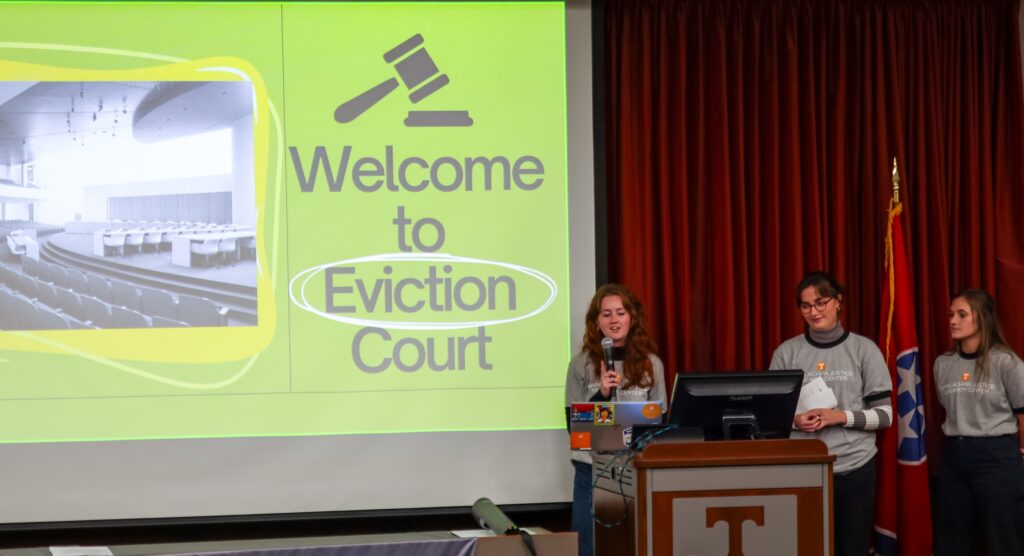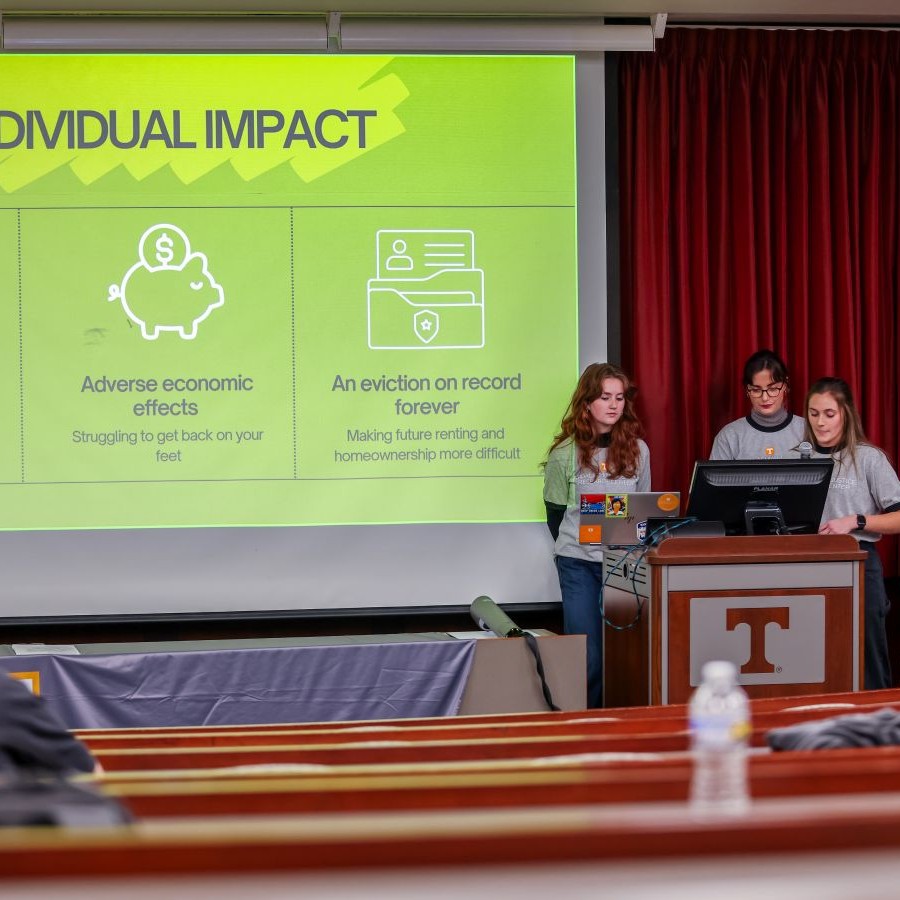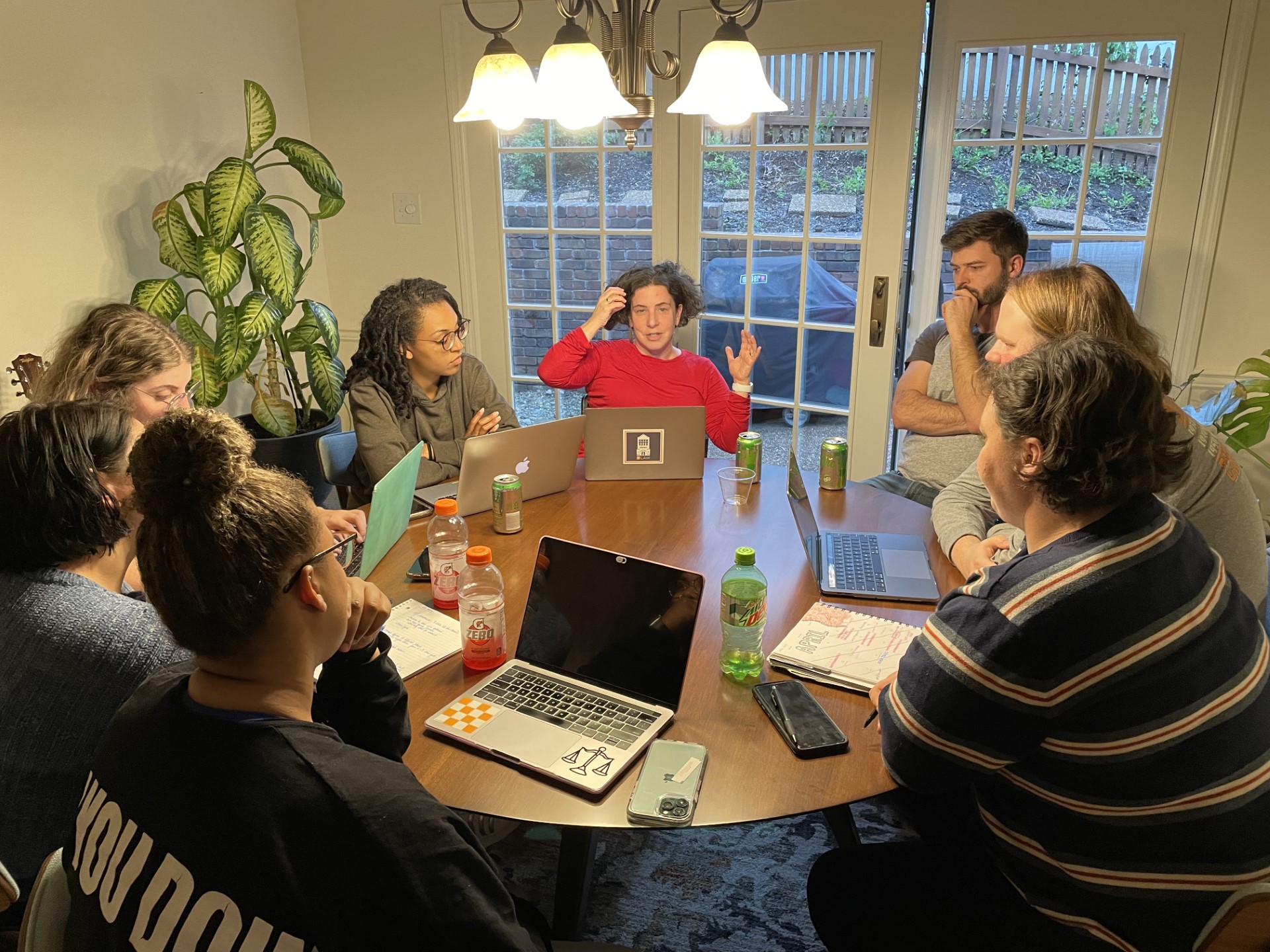AJRC releases first public report detailing the scope of evictions in Knox County

Students in the Fall 2024 Appalachian Justice Research Lab present preliminary data about evictions in Knox County, TN.
The University of Tennessee Appalachian Justice Research Center released its first public research report, which details the scope of Knox County’s eviction crisis and presents data that demonstrates the economic efficiency of investment in Legal Aid of East Tennessee’s (LAET) eviction prevention program.
Background
Between 2019 and 2023, rent in the Knoxville Metropolitan Area has risen 34%, and in March 2025, more than 350 households were on the Knox County eviction court docket.
“A general rule of thumb is that a family should not pay more than 30% of their income on rent,” said Dr. Solange Muñoz, lead report author and professor of geography & sustainability. “The fact that over half of households renting in Knoxville pay more than 30% of their income on rent, and a quarter of households are now paying more than 50% of their income on rent has created precarious housing situations for so many, putting many families just one car payment, one medical bill, one unforeseen payment, away from facing eviction, which will greatly increase their odds of becoming homeless.”
In October 2023, Knox County announced a partnership with LAET using funds from the federal Emergency Rental Assistance (ERA) program to enhance their ability to provide legal counsel to income-eligible tenants at various stages of the eviction process. The additional funding and service expansion has resulted in a significant increase in legal access for Knox County’s low-income tenants; however, due to the nature of the funding, the program will end in May 2025 unless it receives continued financial support from the City of Knoxville and Knox County.
The Report
In 2024, Statewide Organizing for Community eMpowerment (SOCM), a local community organization, approached the newly launched UT Appalachian Justice Research Center (AJRC) with a series of research questions: What is the nature and scope of Knoxville’s eviction crisis? What are the experiences of tenants facing eviction and how effective is representation, provided by Legal Aid of East Tennessee, in helping address the crisis? In response, the AJRC convened a research team of faculty, students, and community members from SOCM to conduct a study to understand the eviction process in Knoxville and Knox County and its impacts on tenants, landlords, lawyers, judges, the city, and the county. The study focused on three areas: 1) the eviction court process 2) state and local laws, and 3) the economic impacts.
The AJRC research team’s report, “Housing Stability and Tenant Representation in a Changing Knoxville,” which includes data-driven recommendations for next steps was published in April 2025. Muñoz summarized the report by saying, “The data from this report underlines the necessity of Legal Aid’s eviction prevention program for individuals and families facing eviction as well as for our already over-stressed public service providers.”
Read “Housing Stability and Tenant Representation in a Changing Knoxville”
“We found that every dollar spent on funding for Legal Aid’s eviction prevention program returns $6.14 in downstream education, medical, and housing costs to the city and county,” said UT geography & sustainability PhD student, John Paul Lynn. “Helping people remain in their homes has multiple downstream impacts on entire communities.”
“The AJRC is thrilled to be able to leverage the immense transdisciplinary capacity of the university to produce rigorous research that is accessible to our community,” said AJRC co-director and professor of law, Wendy A. Bach. “The students and faculty produced terrific work, and we hope that the data in the report supports Knoxville’s ability to effectively address the housing crisis in our community.”



